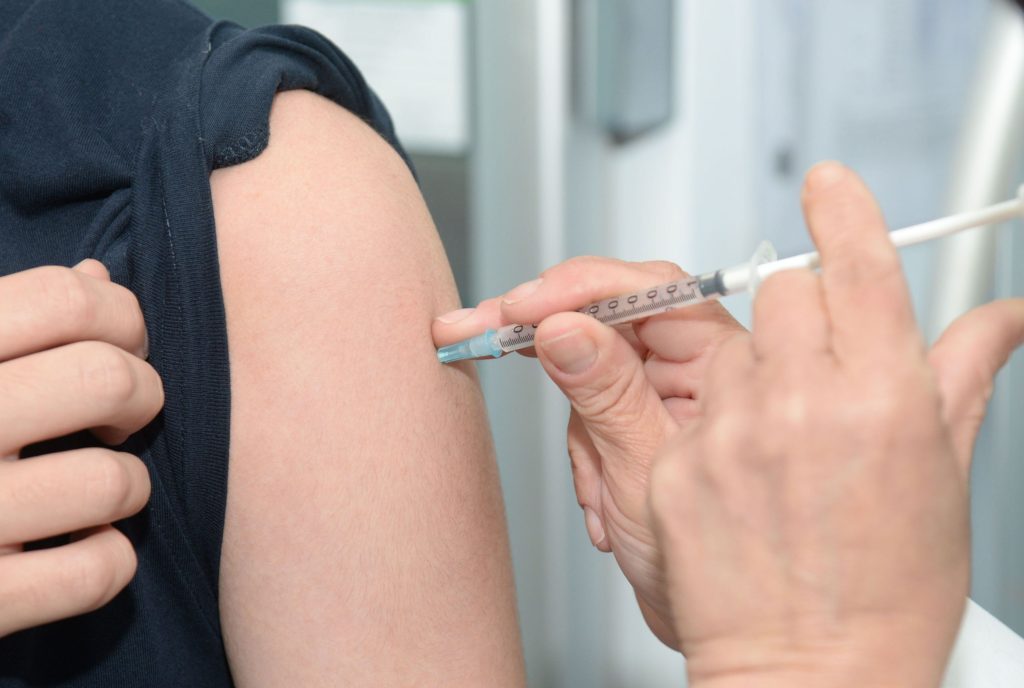Please note that this post contains affiliate links and any sales made through such links will reward me a small commission.
If you had the chance to prevent cervical cancer right now, would you do it? No brainer huh? Well, I’ve got some good news for you! The Federal Food and Drug Administration (FDA) has just given the ok for women (and men) 27 years and older to get Gardasil 9- the Human Papillomavirus (HPV) vaccine. Yaaasss girl!
Human Papa What?
Yeah so, let’s talk about human papillomavirus (HPV). This group of viruses can potentially cause serious diseases like cancers of the cervix, vagina, and vulva and also cause genital warts in women. What’s scary is these viruses are more common than you think. One in four people living in the United States is currently infected with one strain of the virus. Honestly, HPV is so common that nearly all men and women will get it at some point in their lives but most times you are able to clear the infection on your own. There are, unfortunately, some people who can’t clear the virus which can then lead cancer or warts.
Umm…. so how will a shot help me?
If you’ve watched any TV lately, you’ve probably seen the HPV vaccine commercials encouraging parents to talk with their child’s doctor about the Gardasil vaccine. The vaccine is approved for use in girls and women ages 9 to 26 and it helps to protect against certain cancers and genital warts caused by the nine most common types of the virus. Initially, studies showed that Gardasil was most effective if it was given before exposure to HPV (we’ll talk about how you get it in a minute) but new studies have found that the vaccine can actually help prevent HPV-related diseases and cancers in a broader age range.
So How do you even get HPV?
So here’s the thing, these viruses are transmitted through intimate skin to skin contact – yeah, sex. And it doesn’t’ matter what kind of sex you’re having…vaginal, anal, or oral sex with someone who has the virus increases your risk of exposure to HPV.
What’s worse is that you may not develop symptoms right away – it could take years which makes it hard to know when you became infected in the first place.
So How do I Protect Myself from HPV?
Glad you asked. So here’s the good news; findings from a recent study of the HPV-9 vaccine given to women ages 27 through 45 years showed that it was just as effective in preventing certain HPV- related infections like genital warts, vaginal and cervical lesions in older women. So if you fall into the group, you may be able to get the shots if you’ve never had it before! Right now the vaccine is given in a two or three dose schedule- the deets about the schedule for “older” women are not yet available.
So what does this mean?
Girl, run don’t walk to your doctor’s office and talk to your doctor about getting this shot. Just a heads up, the expanded vaccine recommendation still needs blessings from a few important agencies (namely the CDC) to be official so it may not be covered by your health insurance…. Yet. Oh, and if you are worried about the side effects- don’t be. Most women who get this shot don’t have any serious problems. Some soreness, redness, or swelling at the site where the shot was given may be experienced.
Personally, I think that is a small price in return of having a potentially life-saving vaccine. Now stop scrolling and go schedule your appointment…NOW (lol)!
Spread the word and save a womb! Let your sister, bestie, homegirl, and coworkers know about this vaccine.
Let me know how you are going to spread the word about this vaccine!

